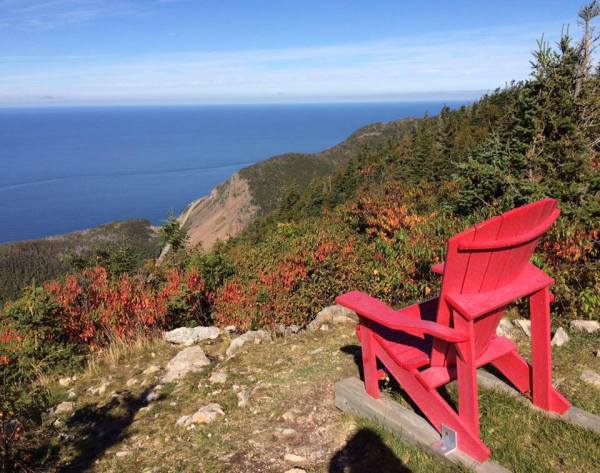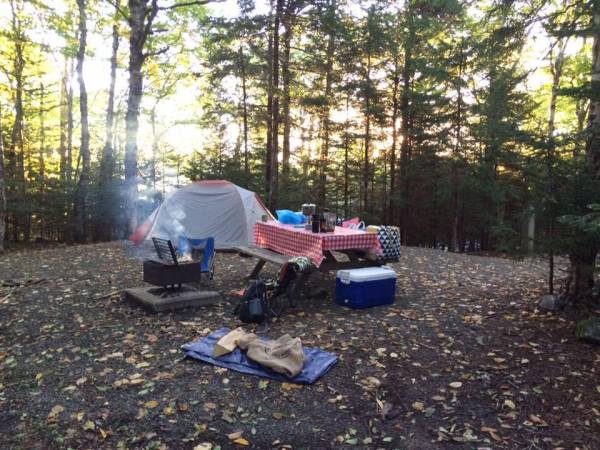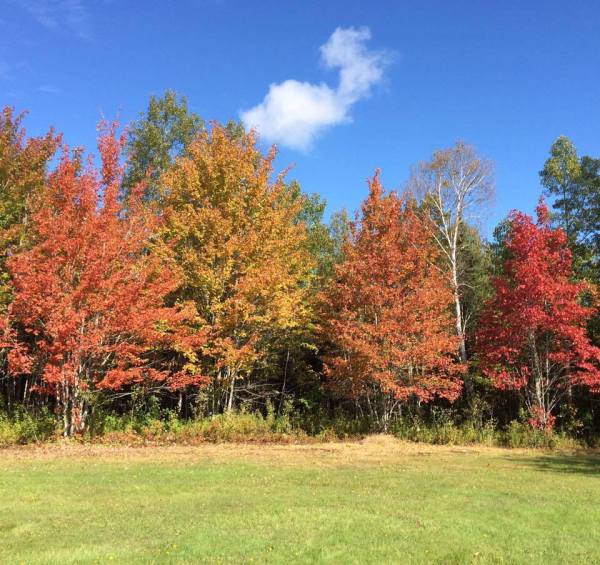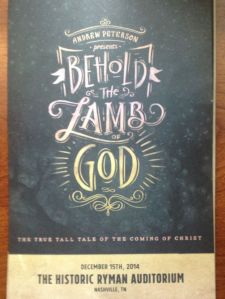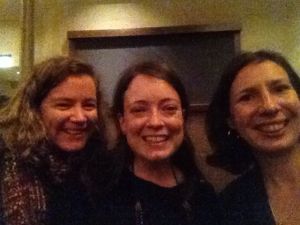Ashes and Dust
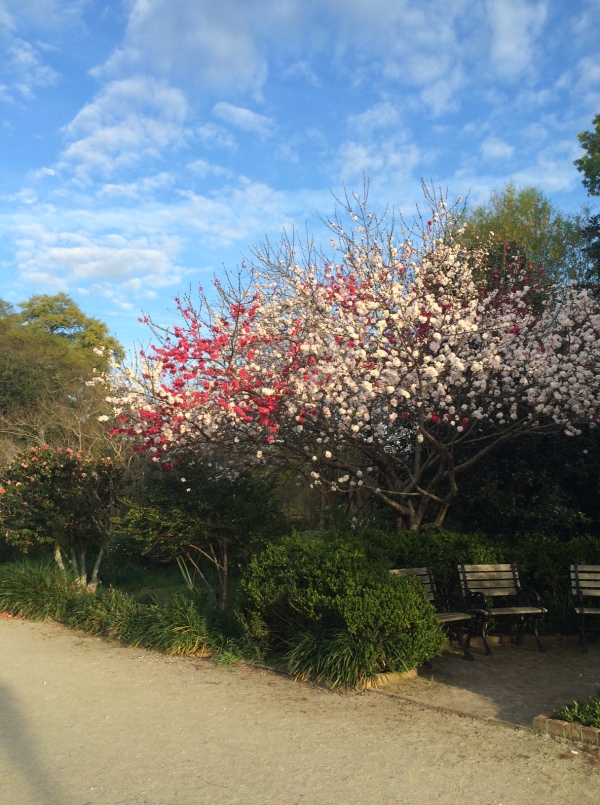 It’s almost Easter, and as Lent draws to a close, I’m thinking about ashes and dust, about life and death, about resurrection, about the color green.
It’s almost Easter, and as Lent draws to a close, I’m thinking about ashes and dust, about life and death, about resurrection, about the color green.
When you first move somewhere new, especially if you’re crossing cultures or countries, the first few days overload your senses. Colors, smells, sounds, weather, flavors, greetings: the newness is noisy and jarring, and it’s hard to process what is happening. Of course, newness always fades, and what once caught your attention moves to the background. But sometimes it helps to remember what you noticed when you were new.
When I think back to Bundibugyo, I remember the unique and not altogether pleasant smell of drying cocoa, the incongruously large bowls of rice friends served me in small mud rooms while their hungry children crowded in the doorway pretending not to watch me eat. I remember riding my bicycle, dodging long-horned cows as they moved up the red-dirt road. I remember baking pizzas under the shade of bougainvillea as the equatorial sun set, burning orange in the late afternoon sky. And I remember always, everything, green.
Kenya, too, was green but also always moving (or perhaps I was the one who had trouble sitting still). More vehicles, more hustle, much more chai. There were tea fields, and the Indian Ocean, and the great Rift Valley. Students filling up all of the space of the school and the work of my days. The breathless altitude, the beauty of mountains and trees, the bright red blankets of the Masaai, the zebras dotting the horizon, the monkeys running over the roof.
Sandwiched between 2 seasons of green, I lived for awhile in a land of dust. South Sudan was not always dry, but this time of year, at least for the years I lived in Mundri, was dry season. Rains would begin tapering off at Christmastime, giving us a glorious season of warm days and cool (ish) evenings, with low humidity and sufficient food in the market. And then, sometime into Lent, dry season would begin in earnest. There would be no rain AT ALL. The temperatures would be in the triple digits even in the middle of the night. People would burn their fields, clearing them in preparation for planting season once the rain returned.
And so, appropriately, the air of lenten Mundri was filled with ashes and dust. We’d have meetings outside, and I’d find that ashes had landed in my hair. Whenever I biked anywhere, my face and even teeth would be tinted orange from the dusty road. Dusting my desk was an exercise in futility.
This year, at the beginning of Lent, I followed a liturgical tradition of attending an Ash Wednesday service, only now I’m in Charleston, SC, where I have been planted for the Spring. In church, we sang and prayed and confessed our own brokenness, shared bread and wine, and we went forward and had ashes placed on our foreheads as we heard the words, “Remember that you are dust, and to dust you will return.”
And for the last weeks, I have been marked by dustiness.
While I’ve been reconnecting to life in the United States, life in Mundri and throughout South Sudan has grown increasingly difficult, and there is much more for my friends there to be concerned about than heat and dust. Many of them are at a risk for their lives. I am conflicted and confused about how to think about it, both grieving how difficult things are the world over, and also finding a strange desire to hide from all of the hard emotions that accompany knowledge of war wrecking a place I once called home.
My work, as you may know, has primarily been in the area of counseling and mental health therapy in recent years. I feel privileged and humbled to battle death and his companions every time I enter a counseling office. Whether I am working with people struggling with trauma, loss, depression, suicidality, addictions, or any of the myriads of reasons people come for counseling: there is always a fight for hope and life and light to win out over darkness, shame, and death.
And yet, I’ve been wondering about all the hard things happening in places I care about, and especially about my role in the midst of a broken world. So, I’ve done what I usually do when I’m wondering about things: I’ve gone on lots of walks and runs in creation, I’ve talked to lots of people who are smarter than I am, and I’ve read lots of books.
In the last couple of days, I’ve read Just Mercy by Bryan Stevenson and When Breath Becomes Air by Paul Kalanithi. Have you read them? If not, you should stop reading this, and start reading those books immediately. They are not for the faint of heart, but they both address important topics, and they are beautifully and eloquently written. And, for my purposes, they address issues of death, suffering, and fairness in helpful ways.
At one point near the end of Just Mercy, when referring to a death penalty case, Stevenson says, “We are all broken by something. We have all hurt someone and have been hurt. We all share the condition of brokenness even if our brokenness is not equivalent. I desperately wanted mercy for Jimmy Dill and would have done anything to create justice for him, but I couldn’t pretend that his struggle was disconnected from my own. The ways in which I have been hurt—and have hurt others—are different from the ways Jimmy Dill suffered and caused suffering. But our shared brokenness connected us…We have a choice. We can embrace our humanness, which means embracing our broken natures and the compassion that remains our best hope for healing. Or we can deny our brokenness, forswear compassion, and as a result, deny our own humanity.”
Perhaps that is what Ash Wednesday, this season of Lent, and even my own season of quiet reflection in Charleston are all about. Remembering our brokenness, our neediness, and how that unites us. I am grieved and perplexed by violence in Sudan, Uganda, and Kenya; and also by violence in Brussels, Paris, and Charleston. It makes me both angry and strangely lackadaisical as I feel unable to do anything helpful and so just want to look away.
But, this week before Easter takes us back to the story of a God who became man, who made his home in the dustiest of places, who was falsely accused, imprisoned, and sentenced to the death penalty. He was a Prince of Peace who lived in a culture of violence, and he brought healing and hope, bread and water, and sometimes wine. He also wrestled with the cup of suffering He would drink down, and He took into Himself the mystery of injustice to mercifully purchase justice for us. This is something I can’t comprehend, and yet it matters infinitely in this world of violence and death.
I’m spending time at the place where Christ’s love meets my own brokenness, and trusting that there I will find the way to then consider how to respond to this broken world. As Kalathini wrote when he was looking death square in the face, “I returned to the central values of Christianity-sacrifice, redemption, forgiveness-because I found them so compelling. There is a tension in the Bible between justice and mercy…The New Testament says you can never be good enough: goodness is the thing, and you can never live up to it. The main message of Jesus, is that mercy trumps justice every time.”
Right now, I’m sitting in my favorite downtown coffee shop, writing in the bustle and hum of mid-afternoon. It’s sunny, 75 degrees, and beautiful in a way that only Charleston Spring days are. It’s about time for me to head out, and as I walk to my car, I’ll pass homeless men and women, sitting with signs, hoping to receive something. On my drive home, I’ll pass Mother Emmanuel church, where less than a year ago senseless violence wrecked this community. There is grief to be seen as soon as you scratch the surface of any setting.
From here I can see that trees are beginning to burst into bloom. Across from me, a young military cadet sits down, and cheerily talks with a veteran he doesn’t know, looking with kindness at a stranger’s pictures of grandkids and listening to war stories when he should be studying. My caffeine has been carefully curated by the barista, my afternoon has been productive, and I think I have time to squeeze in a run before meeting friends for dinner.
Things are beautiful, hopeful, and yellow. A film of dusty pollen covers everything, tinging sidewalks, coating cars and throats, leading to sneezes and complaints. But without this yellow dust, there would be no blossom, no bloom, no green new life bursting forth everywhere. Anticipating and already experiencing the coming beauty of everything blooming, I’ll take today’s dustiness in stride, accepting watery eyes, a parched throat, and a dirty car as a part of the process of new life coming.
So much of life is mystery, and there is loss we may never understand, but as we are in the midst of these dusty days, let us live in the light of resurrection, looking for hope and light to burst forth in the least likely of places. And, in a world of digital impatience, let us read the books and go on the walks and have the conversations that continue to move us out into the complex, challenging, beautiful world.
Christmas Waiting
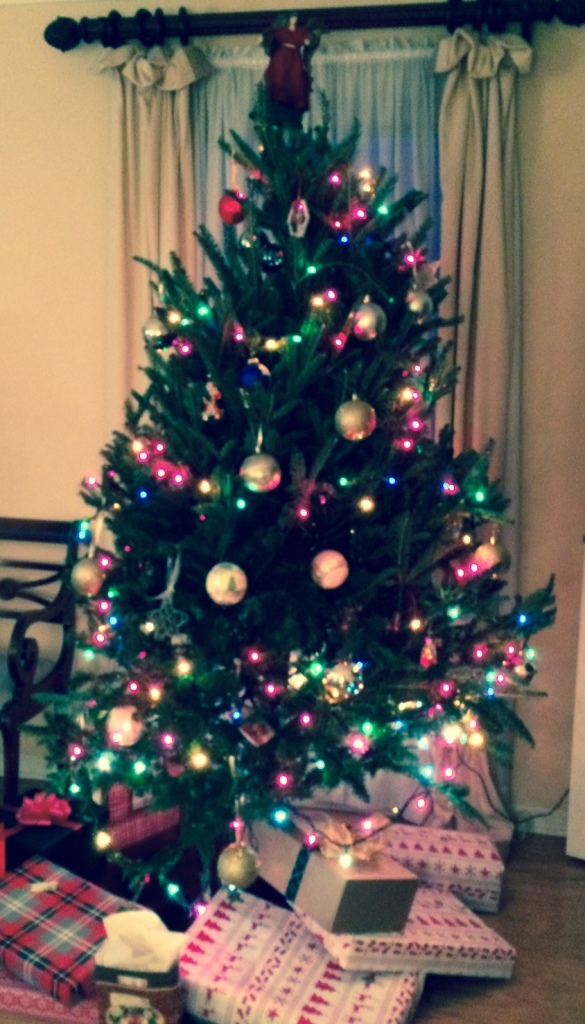 As a person who has lived in too many places, part of my holiday cheer involves letters and packages mailed the world over. This also means that, recently, I have spent an inordinate amount of time at the post office.
As a person who has lived in too many places, part of my holiday cheer involves letters and packages mailed the world over. This also means that, recently, I have spent an inordinate amount of time at the post office.
My parents live in a town small enough to have a post office inside of a pharmacy that also boasts a soda fountain with award winning milk-shakes. Last week, I got to the front of the line with my stack of envelopes and packages. A friendly store employee handed out Christmas milk shake samples, and carols played over tinny speakers, and everything was bustling and cheery.
The post office clerk smiled, and asked about my day, and began weighing my packages to mail. Then, her phone rang. She checked the number, answered, and immediately seemed to crumple in front of me. She said a few quick words, hung up the phone, and grabbed her purse, absently saying to her coworker, “They think he’s had a stroke.” And with that, she was gone, barely hearing her friend call out, “Wait, you’re in no state to drive yourself!”
A few minutes later, her kind coworker came to help me. “Thanks for waiting” she said. And then, “Her husband. A stroke, they think. It’s almost his birthday. 73 on the 29th. Thanks so much for waiting.”
It seemed insufficient, in that moment, to only wait. I wanted to reach over the vast divide of the post office counter, to say the right thing, to offer something helpful. But all I could offer in that moment was standing still.
Later, again at the post office, I learned that her husband was in the hospital, but out of the woods, and he seemed to be speaking, but they were all just waiting to see what would happen.
Back in line, the woman behind me waltzes in with her friend (husband? brother?), and she’s fretting over the glue stick she left in the car, and getting excited about the Nativity stamps because she, “wants the Gospel message right there on the front of the Christmas cards.” She talks to me, and we laugh about all the last minute rush of Christmas. She tells me about her job at the Hobby Lobby, and how people, who have had all year to prepare, come in this last week, flustered and angry and trying to get the perfect picture framed in time for Christmas. And we agree that getting it perfect isn’t the point, that gifts really aren’t the main thing at Christmas.
Our conversation fades, and I move forward in line, and she turns to her friend and says, “Are we going to the thrift store after this?” And he says, “Sure, I could go to the thrift store.” She replies, “I love the thrift store. I am ALWAYS BLESSED at the Goodwill.” Then she laughs, and we move a few more steps forward.
Finally, I make it to the front of the line, and as my many packages are weighed and stamped, a young man steps up beside me. In a certain light, his youthfulness and baggy clothes and serious expression could be intimidating. The clerk asks if there is anything dangerous in the box he is mailing, and when he mumbles, she reacts and sternly asks again, and he calmly enunciates that “It’s a coat.” A coat for his grandma, actually. And the clerk notices the mailing address’s apartment number, and the young man says his grandma is on a top floor of her apartment, and she doesn’t like riding the elevator that high. And then, the clerk assures him the Grandma will receive her cozy coat in time for Christmas, that she won’t have to wait too long.
So many of us, the world over, are waiting at this time of year. Sometimes in the waiting we witness sickness and fear and news that seems to bring our world crashing down. Sometimes, we encounter hope and blessing and the Gospel message in everything from conversation to Christmas cards. And sometimes, our waiting shows us that things aren’t what they seem at first glance, that even though we think we have things figured out, that we are still able to be surprised by the kindness and care of others.
I hope this Christmas finds you out of the lines and busyness of Christmas preparation and surrounded by people you love. And yet, I also hope that, like me, you are still waiting. And in that waiting, I hope you encounter “the tender mercy of our God, whereby the sunrise shall visit us from on high to give light to those who sit in darkness and in the shadow of death, to guide our feet into the way of peace.” (Luke 1:78-79)
Whether you’re in hospital rooms, post office lines, lonely apartments, unstable South Sudan or Burundi, rainy Kijabe, cozy living rooms, hymn filled churches, or even at the Goodwill, I hope you, like my friend (and also like Mary and Elizabeth when they were unexpectedly expecting) will be able to say, “I am blessed.” And may the tender mercy of our God visit you with light and faith this holiday season, and may His visitation guide your feet into the way of peace.
Merry Christmas, and thanks, as always, for reading, and for being a blessing and a light in my life.
Shining Like the Sun
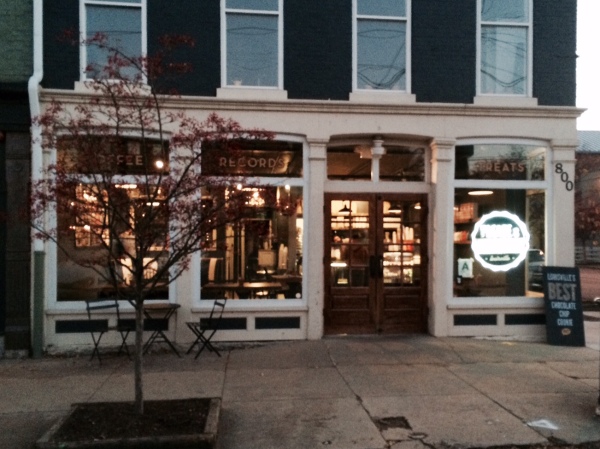
Late afternoon Louisville
“In Louisville, at the corner of Fourth and Walnut, in the center of the shopping district, I was suddenly overwhelmed with the realization that I loved all these people, that they were mine and I theirs, that we could not be alien to one another even though we were total strangers. It was like waking from a dream of separateness, of spurious self-isolation in a special world. . . . This sense of liberation from an illusory difference was such a relief and such a joy to me that I almost laughed out loud. . . . I have the immense joy of being man, a member of a race in which God Himself became incarnate. As if the sorrows and stupidities of the human condition could overwhelm me, now that I realize what we all are. And if only everybody could realize this! But it cannot be explained. There is no way of telling people that they are all walking around shining like the sun.”- Thomas Merton
One thing returning to the United States means for me is traveling. Lots and lots of traveling. I’ve visited 12 states so far, and will be in a couple more next week. My borrowed little car has rushed through the veins of the American highway system, and I’ve marveled the majesty of smooth roads and rule-following drivers, the absence of goats and chickens, mutatus and motorbikes. I’m definitely not in Kenya anymore.
So many of the people I love have been scattered and sown around the country, and I also need to learn some things, so I’m going to classes on counseling and community development while trying to reconnect with dearly loved friends and family who have prayed and poured into the work I’ve done in East Africa.
It is such a gift, to sit at your tables, to share meals and conversation, to feel time stop for an hour or two. I am touched by the abundant generosity I’ve received as I’ve crashed on couches, laughed with kiddos that I remember as babies, and savored the gift of being present.
Last week, just before Thanksgiving, my final stop before heading home was Louisville, KY. I walked the streets where, years before, Thomas Merton stood and saw the people around him shining like the sun. And as I reflected on my recent travels, and the many of you that I’ve seen, I realized I felt exactly like Merton. You, in your love and generosity, are shining like the sun, and you don’t even know it.
At the same time, my travels have carried me to places rife with tension. I’ve been twice to Memphis, TN, standing in the place where Dr. King was shot. It is a grievous mystery how his life was taken too soon and how, this many years later, our country is still battling for racial equality. I’ve driven through St. Louis, reflecting on the violence of Ferguson, a place that shares my name in a city I used to call home. And I went out to Mizzou to visit a student from Rift Valley Academy, who has entered her first year of college. It was the same week when, due to significant racial injustice, a Mizzou student was on a hunger strike, and the football team was peacefully protesting, and their were death threats made against everyone on campus with darker skin. Security was heightened, feeling more like a lockdown in Kenya than things I’m used to in the US. And fresh-from-Kenya Emily, who I visited, was stepping into the confusion, serving as a photographer for the school paper, documenting protests, and learning some hard truths about race in the United States. Next week I’ll head to Charleston, where I attended college, and a place that has been marked forever by racial violence in a church very near the one I used to attend.
How do I understand this? How do I reconcile the beauty and generosity of America with the brokenness of racism and violence, of economic injustices, of religious prejudice, of mass shootings showing up in the news? It feels like things have changed since I last lived here, but maybe it’s my perspective shifting? And perhaps my privilege has blinded me to places in my culture where there is need for repentance and change?
We in the Northern Hemisphere are approaching the darkest night of the year. And we feel the need for light and brightness. So let us fall again into the two-step Advent rhythm: preparation and expectation. We prepare by grieving the brokenness, and repenting of our own roles in the systems and structures that promote injustices. And we turn, in our giving and living, away from ourselves and towards God and others. This is the preparation of Advent. But as we do that, we soon realize it’s not enough. And so preparation (always) leads us to look desperately for deliverance. In expectation, we anticipate the delivery of a baby, the God/Man who comes to bear our grief and know our sorrows, and through His death becomes our deliverance.
“The true light, which gives light to everyone, was coming into the world. He was in the world, and the world was made through him, yet the world did not know him…But to all who did receive him, who believed in his name, he gave the right to become children of God…And the Word became flesh and dwelt among us...” May His light become our light, and may we shine like suns in our preparation and expectation as we wait for His coming more than watchman wait for the dawn.
Bless All Seasons
Today, a rainy Sunday at the end of November, marks the beginning of Advent. I’ve had my turkey and counted my gratitude with my parents and brother, celebrating Thanksgiving with family for the first time in many, many moons. The end of November has actually found me in 4 different countries over the last 5 years: South Sudan, Uganda, Kenya, and now here in America. For years I’ve been shaped by the experience of being welcomed in lands where I am a foreigner and stranger, and this year I’ve appreciated a new sort of gift of being at home with those who’ve known me my whole life.
I always think it’s suitable that Thanksgiving ushers us into Advent. Even though advertisements have been pushing it for weeks, now is the time begin pulling out candles and cookie recipes, stars and stories; our gentle preparations for the coming of Christmas.
Are you at all surprised that one rhythm I love at Advent is reading essays and reflections that help me reconnect to the larger redemptive story? Being back in the States has allowed me unexpected access to a little company called Amazon, who will send, to your door in 2 days with free shipping, any new or lightly used book. I also watch You’ve Got Mail at Christmas, and I believe there is nothing quite like buying books in the coziness of a local bookstore. But, as someone who has lived in places with little access to non-digital books, please allow me to relish, for a moment, the gift of easy access to literal literary pages.
This year, I chose to order The Irrational Season by Madeline L’Engle, which is a collection of essays structured around the church calendar, beginning and ending with Advent. Its title is also a line from one of her most famous (or perhaps just one of my favorite?) Christmas poems.
One small secret is that I love reading old books that have been loved by other people, noticing what was underlined and dogeared, paying attention to what words might have meant something to a previous reader. When I got my $6 copy of The Irrational Season, I quickly flipped through it, noticing what had been highlighted. And then, I started back at the beginning, and realized that the book had been signed by Madeline L’Engle herself!! On the front page she had written, “for Sarah, bless all seasons. Madeline L’Engle.”
I have no idea who Sarah is, but for a moment, I took Ms. L’Engle’s words, carried through time and by the hands of the US postal service, to be for me, too. Because her three small words are so perfect, and wise, and more challenging than they initially seem.
It can be hard to bless all seasons. Isn’t it tempting to look back on the past with a strange mix of guilt and nostalgia, and to gaze towards the future with anticipation mixed with anxiety, all the while missing the gift of what is right here and now? I find this can especially true at Christmas when there is a certain sort of pressure to be happy, and accumulate, and to evaluate where we’ve come and where we’re going. But what would it mean for me, for us, to bless all seasons? To see with gratitude the gift in the full years and the lean years, the times of foreignness and the times of homecoming, the times of too many social obligations and the times of loneliness, the times of joy and sadness, and the times where all of the feelings are all mixed together?
Bless means “to confer or invoke divine favor upon.” And we, because of the story of a baby and a cross and rolled away stone, can see our lives through the lens of this favor, can trust God’s kindness in the midst of mystery.
Perhaps too, L’Engle’s words were a type of prayer, a request for the Blesser to bless all seasons, a pronouncement of blessing over Sarah’s life, and now through this surprising Amazon order, a blessing that spills over into my life and into this Advent.
I believe that Advent offers us the opportunity, if we allow it, to bless all seasons, as we enter again into this season of waiting and watching and remembering.
Nov 29, the first day of Advent this year, also happens to be Madeline L’Engle’s birthday, as The Writer’s Almanac so helpfully reminded me this morning. And it seems suitable to remember her birth and life at the beginning of this season which is all about birth and life but also death and dying. In her 2008 obituary in the New York Times, Ms. L’Engle was quoted as saying, “Why does anybody tell a story?…It does indeed have something to do with faith, faith that the universe has meaning, that our little human lives are not irrelevant, that what we choose or say or do matters, matters cosmically.”
As we retell a most important story this Advent season, may we also remember that we do it because it matters, matters cosmically. As you bake your cookies, sing your songs, welcome the foreigner and refugee, pray you quiet, desperate prayers, hug your mom, hang your decorations: through it all, may you feel the presence and care and joy of the One who has come, is coming, and will come again to bless all of our seasons.
P.S. Ms. L’Engle is also famous for having said, “You have to write the book that wants to be written. And if the book will be too difficult for grown-ups, then you write it for children.” This was connected to her publishing A Wrinkle in Time which was rejected by 26 publishers before it was published. 26 publishers!! So, let this be a reminder to us all that rejection doesn’t always know what it is talking about, and that children are often wiser than editors and influencers.
The Fire and the Flame
Earth’s crammed with heaven, And every common bush afire with God, But only he who sees takes off his shoes; The rest sit round and pluck blackberries.– Elizabeth Barrett Browning
The bright side of the planet moves toward darkness And the cities are falling asleep, each in its hour, And for me, now as then, it is too much. There is too much world. -Czeslaw Milosz, The Separate Notebooks, quoted at the beginning of Station Eleven
Does anyone really blog anymore? I, apparently, do not.
It may be true that people only have the attention for speedy, tweetable pithiness, or well-curated Instagram shots, and there isn’t much space left for rambling reflectiveness. Except that my brain wants to carve out the space, to put words to things that don’t seem to resolve without the discipline of spelling it out. And also, I need to bear witness, in this small corner of the internet, to what is happening in this “too much world.”
A series of twists and turns have landed me back in the States a little earlier than I anticipated, and after 6 years of life in East Africa, the beginning of this 7th year is for me a sabbatical of sorts, a time to reconnect and reengage with friends, family, and supporters in the US as I pray about the future and evaluate plans to return to East Africa.
It’s strange that one way to reconnect with actual people means disconnecting from most things internet-based. I’ve loved exchanging Skype and Facetime and Facebook for actual coffee dates and walks and dinners. There’s nothing like reconnecting face to face after years away.
For the first time since 2009, I am also enjoying the actual experience of North American Autumn. And ya’ll, the hype is true! Changing leaves are amazing!
A couple of weeks ago, I was able to travel through the Northeastern United States and up into Canada just as the leaves were changing colors. And in the blink of an eye, whole forests went from basic green to blazing. Reds and oranges and yellows, burning bushes all around. I hiked and camped and marveled, and I rarely checked my e-mail.
In Montreal, near the end of my travels, I learned that Mundri, South Sudan, was burning. The little Sudanese town that I love had been besieged by the unimaginable: shooting and violence, looting and burning of homes. My friends (who had fairly recently returned home after violence this summer) were once again fleeing out into the wilderness, this time with less hope of a quick end to the instability. After getting this shattering news in a summary e-mail on my phone, my friend Catharine and I headed out to brunch at a lovely restaurant called The Sparrow.
As we sat over artfully presented pancakes and eggs, I found myself torn. Part of me felt so much joy to be exactly where I was, in a cozy cafe with one of my best friends, eating good food and practicing my non-existent French with kind Canadian waitresses. And another part of me felt desperately guilty both for not being in Mundri (where I was actually scheduled to be before June’s fighting meant I couldn’t return for the Fall) and for being so relieved at not being there. But mostly, I just felt wearily angry that things don’t seem to get better, or if they do, they don’t stay better for long.
It wasn’t lost on me that we were in a place called the Sparrow, and in my head I thought about Jesus saying, “Are not two sparrows sold for a penny? Yet not one of them will fall to the ground outside your Father’s care. And even the very hairs of your head are all numbered. So don’t be afraid; you are worth more than many sparrows.” Somehow this often quoted verse doesn’t feel so reassuring, thinking of how houses and people are falling in South Sudan while Jesus says not even a sparrow falls to the ground outside of the Father’s care. I wonder how to interpret God’s care for beautiful, burning South Sudan, and how in the world is it possible to not be afraid?
My friend Catharine talked me through brunch, reminding me of things Wise and True, and I am grateful again to bear sorrow in the context of community, and to have friends who remind me that things won’t always be this way, and that there is more grace at work in Mundri than I can imagine, and that there is space to be both grieved for my friends and grateful for safety.
The Psalm I memorized early on in my days in Bundibugyo has stayed with me through all my travels, and it says,“How lovely is your dwelling place, Lord Almighty! My soul yearns, even faints, for the courts of the Lord; my heart and my flesh cry out for the living God. Even the sparrow has found a home, and the swallow a nest for herself, where she may have her young- a place near your altar, Lord Almighty, my King and my God. Blessed are those who dwell in your house; they are ever praising you. Blessed are those whose strength is in You, whose hearts are set on pilgrimage.“
I can relate to the psalmist, who sees that even sparrows have found home and family in the shelter of God, while he still longs to find his place. He knows that those who dwell in God’s house have the gift of praising God. But then he says my favorite missional line, “Blessed are those whose strength is in you, whose hearts are set on pilgrimage.” In contrast to those who are already there, we pilgrims wait for resolution, and in the waiting find strength and are somehow blessed. Is it possible that the only way to find our strength in Him is to first realize our own weakness as we walk through pilgrim days and into stories that are just too much to understand on our own?
Perhaps today, you find yourself and your family at home in God, praising Him easily. Or maybe you are feeling more and more the weakness and uncertainty of this wandering world. Either way, in the burning and the flame at the end of October, may you and I have eyes to see the world afire with God, and may we pause to take off our shoes, and open our hearts to the beauty and the brokenness of this “too much world.”
Good Hope
On an unexpected Wednesday, I find myself in southern South Africa, in a rental car, racing with friends towards the ends of the earth. We drive to that place where the Indian and Atlantic Oceans crash together, a place of storms and roughness and beauty, aptly named the Cape of Good Hope. As we enter the park that surrounds the Cape, Finch-man, with his endearing affinities for super-heros, War Eagle, and goat cheese asks aloud, “What is hope? Is it an animal?” 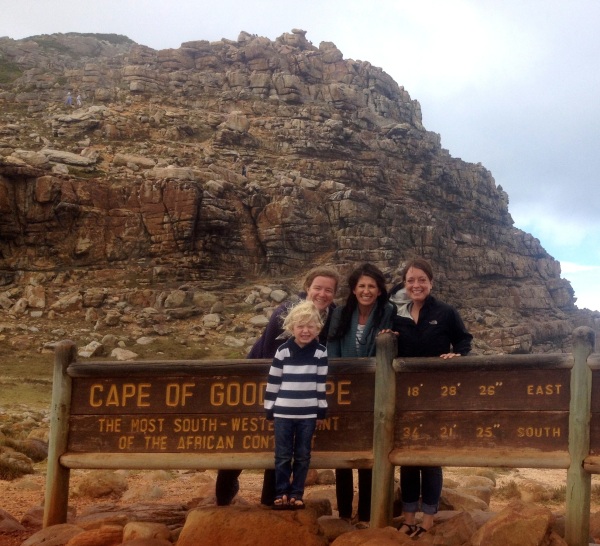 Of course, this is an understandable question from a 4-year-old when he hears we’re going to the Cape of Good Hope. He wonders if perhaps hope is something like a lion or leopard or fish eagle, the wild things we might drive to see in this part of the world.
Of course, this is an understandable question from a 4-year-old when he hears we’re going to the Cape of Good Hope. He wonders if perhaps hope is something like a lion or leopard or fish eagle, the wild things we might drive to see in this part of the world.
Heidi, Lesley, and I stumble around, trying to get a grasp on the slippery concept of hope, and seeking to explain it in concrete terms. Finch has moved on because there are Oceans! Rocks! and Wildness! to be explored, and we have already shown him that hope is definitely not as tangible as lions and leopards. The urgency of understanding hope has been eclipsed by the immediacy of adventure. 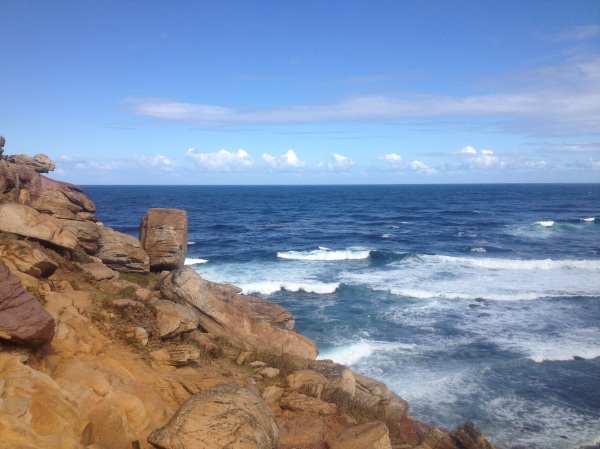 But I think Finch has to have a little of Emily Dickinson in him, because remember how she said:
But I think Finch has to have a little of Emily Dickinson in him, because remember how she said:
“Hope” is the thing with feathers –
That perches in the soul –
And sings the tune without the words –
And never stops – at all –
And sweetest – in the Gale – is heard –
And sore must be the storm –
That could abash the little Bird
That kept so many warm –
I’ve heard it in the chillest land –
And on the strangest Sea –
Yet – never – in Extremity,
It asked a crumb – of me.
I, on purpose, once visited Emily Dickinson’s house. It was exciting. Seriously.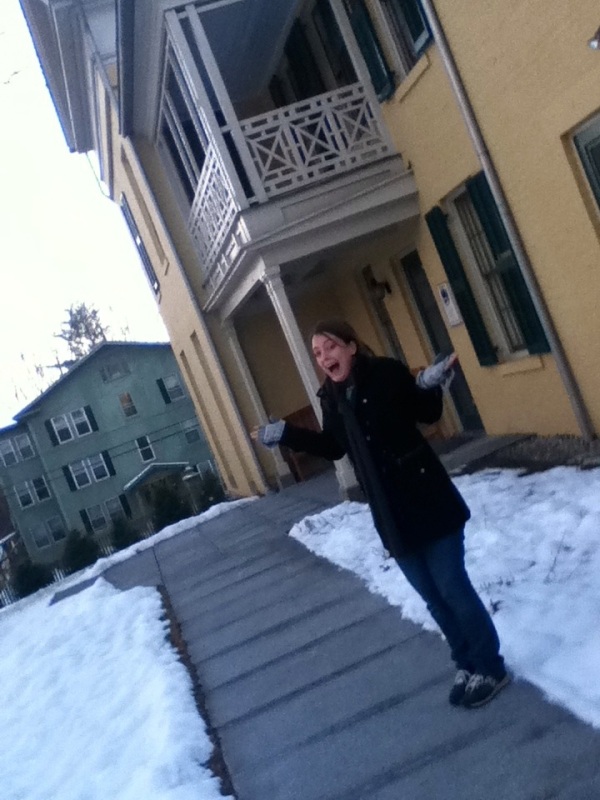 I made my friend Catharine take pictures me in front of the quiet New England home, and thought of that poet who hid behind walls and words, who lowered baskets of gingerbread to neighborhood children out of her upstair’s window.
I made my friend Catharine take pictures me in front of the quiet New England home, and thought of that poet who hid behind walls and words, who lowered baskets of gingerbread to neighborhood children out of her upstair’s window.
Sometimes, holing up in a New England house, and making gingerbread and tea and writing on scraps of paper sounds lovely. And for Emily, it was a context for creativity and exploration. But generally, I think faith continues to push us out “in the chillest land, and on the strangest Sea,” to the ends of earth, to the places where Hope can seem hardest to find.
Many of my friends are walking through hard days. Loss, uncertainty, death, goodbyes, evacuations, and sadness have populated their stories. And yet, in all of them, there has also been this tenacious fight for Hope, belief that death is not the end.
I was at the Cape of Good Hope a week after remembering Easter’s resurrection story with my Serge colleagues from throughout East Africa. We gathered for in Diani for a week of training, but also for a time of encouraging one another in Hope. And I was reminded that Hope sustains us when it is grounded in reminders of a body broken for us, of a life poured out for us, of a gravestone rolled away, and a King who is coming soon.
At the place where earth ends and seas are joined, where waves crash and storms threaten, Lesley and Finch and Heidi stacked stones. Call them cairns, or Ebeneezers, memorials to close family members who have died, and also as reminders that death is not where the story stops. In Hope, even through grief, we cling to the promise and power of resurrection and celebrate the lives of those we love.
I am privileged to have stood in ocean spray at the Cape of Good Hope, and to have witnessed the wild work of Hope in the lives of my dear friends. Now I’m back in Kijabe, the Stevens are back in Uganda, and tonight Heidi flies back to the US. We are all getting ready to start back into the more normal (is it ever normal??) rhythms of our lives, and we are all wrestling with questions of calling and future. As we step away from the ends of the earth, and land in the middle of everydayness, may we, like Finch, continue to explore the wild beauty of Hope with tenacity and grace.
PS-Finch also encouraged me to live more boldly. Here we are outside of Stellenbosch, practicing our superhero poses and preparing to fight against all of the bad guys. He is the best!
Within the darkness, all is being changed
By expenditure of hope,/Intelligence, and work, /You think you have it fixed. /It is unfixed by rule./ Within the darkness, all/ Is being changed, and you/ Also will be changed. -Wendell Berry, A Timbered Choir
“The afflicted shall eat and be satisfied; those who seek him shall praise the Lord! May your hearts live forever. All the ends of the earth shall remember and turn to the Lord, and all the families of the nations shall worship before you. Posterity will serve him; future generations will be told about the Lord, and proclaim his deliverance to a people yet unborn, saying he has done it.” -Psalm 22: 26,27,30,31
“The Psalm verse Jesus had yelled out was of course the opening of Psalm 22: ‘My God, my God, why have you forsaken me?’ On and on goes the Psalm, plunging down into the depths of despair, of self-loathing, or helpless suffering…Verses 22-31 depend entirely on the twenty-one verses that precede them. They are the fruit of the suffering. We read them today, a mere ten days into Lent, as an act, not of respite, as though they cancelled out the earlier part of the Psalm, but of encouragement. This is where it’s all going, even if where we currently stand seems dark, dangerous, and sad…Even when we can see nothing but darkness, the cross still points upwards to the God who makes even human wrath turn to his praise. This cruel cross, planted roughly in the stony soil of Calvary, will thus bear fruit, fruit that will last: rescue, mission, praise. And we who find ourselves, this Lent, standing at its foot, in darkness and perhaps even despair, must learn to train our ears to hear these verses, not cut off from the rest of the Psalm but precisely growing out of it…Watch and pray for the day when these final verses will become as real and obvious in our world as the darkness and suffering is right now.”
-NT Wright, Lent for Everyone
This has been a heavy week. One close friend lost her mother to ALS, while another lost her 24 year old sister in a tragic car accident. Friends from South Sudan have come to Kenya for unexpected medical care and surgery. Friends here at school have struggled with battles big and small. My teammates at the hospital battle daily against death, and see death taking too many children. South Sudan is becoming less and less stable. I’ve felt stretched, and weary of the distance between here and America, and also frustrated with the ways that my school-based work can be perceived as less by those far away, sometimes simply because it isn’t as remote, edgy, or publicly presented as my work was in South Sudan. And then, I feel embarrassed when I feel defensive about it (or when I wonder if they’re right).
Of course, I’m giving you the broad strokes of struggle, and that is not the whole story. There have also been so many sweet things: beautiful sunrises over the valley, and friends stopping by with brownies, and cozy fires, and laughter with kids, and change witnessed in my counseling office. Good books, and plans for upcoming trips, and time with my team and community. Have I mentioned how much I love working with students at RVA? They constantly amaze me with their resiliency, kindness, and candor. As I would assume it is with you, my life is often a mystifying mix of laughter and tears, clarity and uncertainty, joy and sadness.
Nonetheless, this last week has felt a little darker than normal. During this season leading up to Easter, as we reflect on Christ’s sacrifice, I want to remember that, as Barbara Brown Taylor says, “…new life starts in the dark. Whether it is a seed in the ground, a baby in the womb, or Jesus in the tomb, it starts in the dark.”
In these dark days of Lent, I believe that something new is beginning, even if I can’t see it yet. Because of this hope, I can rest in the small hiddenness of my school-based work, grieve deeply with those who feel the stealing sting of death, offer meals and hugs and questions to the displaced, and pray for the places shaken by instability. On this journey, may we sense the bright power of transformative resurrection at work in the places that seem to us the most dark.
PS: Regardless of your position on his perspective on Paul, I think you should consider reading some of N.T. Wright’s Lenten reflections found in Lent for Everyone: Mark, Year B.
Bear With Me
Tuesday evening, early, my house is visited by some of my favorite high school seniors. They fill my kitchen, spilling out into the living room, and suddenly my house is alive with laughter and conversation and singing along with Taylor Swift. After months of this weekly rhythm, they easily fall into roles of chopping and sauteing chicken, making peanut sauce, steaming cabbage and carrots, washing dishes, wiping counters. Brownies cook in the oven, and nachos feed us while we wait for the main coarse to be ready. We talk about college acceptances, and future plans, and memories from previous years, and always (are your surprised?) boys. Each week someone leads in prayer in a different language, and this week our food, and our lives, are blessed in Danish.
These last couple of weeks have been involved all the sorts of things that make work challenging: heavy realities, confusing situations, discouragements, uncertainties. Most of these things happen quietly under the radar, but they can take a toll on me that comes out in crankiness, quietness, or fatigue. Because of the weightiness of things, I have needed help to do the job I feel like I should be able to do on my own, and I don’t like adding to the burdens of others in a place where I know all my colleagues are already stretched. In the last couple of days I’ve also caught a cold, which I acknowledge may be skewing my perspective on things a little, since small struggles loom larger when you’re sniffling and sneezing your way through them.
Regardless, it has been an appropriate time to consider the ways we bear one another’s burdens. I listen recently to this message, which talks about bearing the burdens of one another as one of the primary roles of community. And as a teacher, and counselor, and team leader, I see the privilege of coming alongside the people around me as they walk through struggles and joys. But it can seem harder or perhaps riskier to acknowledge how much I also need people who are willing to bear with me. When I am overwhelmed, loneliness or feelings of aloneness can seem to be what is most true, and I can feel as though I have to do everything on my own.
And so tonight, I am gratefully mindful of the sheltering community that surrounds me. For the gift of Serge teammates who pray with me, and listen to me, and offer to bring desserts. For the counseling and administrative teams I work with, who come alongside me and remind me of what is true, who make phone calls and write e-mails on my behalf, and even send me flowers. For friends here who are in similar life stages and who plan adventures for our midterm break meaning that I get to spend the weekend in a Swiss Family Robinson style tree house while eating Indian food, binge watching Person of Interest and knitting like a grandma. For a wide-spread group of friends who remember me here and send me e-mails and imessages and letters and packages and support and all manner of love. And I’m especially grateful for the students I’m privileged to work with, who bring laughter into my house, who speak wisely and bravely in my counseling office, who consider what it means to walk in the light of community, who bear with me as I learn what it means to live and work here.
I’m grateful for these many blessings of life in Kenya as they come at unexpected times, through surprising people, and sometimes even in Danish.
Radiant Light
“The moon sets and the eastern sky lightens, the hem of night pulling away, taking stars with it one by one until only two are left.” -Anthony Doerr, All the Light We Cannot See
“Long ago, at many times and in many ways, God spoke to our fathers by the prophets, but in these last days he has spoken to us by his Son, whom he appointed the heir of all things, through whom also he created the world. He is the radiance of the glory of God and the exact imprint of his nature, and he upholds the universe by the word of his power… You, Lord, laid the foundation of the earth in the beginning,and the heavens are the work of your hands; they will perish, but you remain; they will all wear out like a garment, like a robe you will roll them up, like a garment they will be changed. But you are the same, and your years will have no end.” Hebrews 1
On this tilting planet, yesterday marked the darkest night of the year for the Northern Hemisphere. And after spending a few weeks of shortened days and protracted nights since returning to the US, I celebrate the returning of the light.
One thing that always strikes me in returning to the States is the brightness. Reliable, consistent electricity means that places are rarely really dark. But this year, I’ve also been surprised by the darkness. Even though I live in the Southern Hemisphere in Kenya, I live so close to the Equator that days and nights are pretty evenly split between 12 hours of dark and 12 hours of light. I find it a little disconcerting to return to Middle Tennessee where it currently gets dark around 430pm. It’s hard to want to continue with regular rhythms and routines when everything is dark. After 5pm, I feel like it’s time to put on pjs, watch Christmas movies, and drink cocoa. Is that concerning?
It’s not Christmas yet, and so you may find yourself caught in the busyness of gift wrapping and traveling and events. I am grateful for recent opportunities to decorate trees in Charleston, and watch ballet recitals and elementary school basketball games in Kentucky and have friends from Sudan and Burundi converge in Nashville for a Christmas concert at the Mother Church of Country Music (That’s what it’s called. Seriously!).
I love all of the rhythms of Christmas: reconnecting with people, lingering with family, cheering for the kiddos of life-long friends, walking familiar streets, listening to holiday music, baking, reading, reflecting, writing. And this year especially, all of it has seemed like so much light. Tastes and pictures and reminders of the joy of that first Advent 2000 years ago, and the Advent that is to come.
As I write tonight, I’m sitting in front of the glowing Christmas tree and I’m thinking of gifts of faith and community that are light shining in what can sometimes be dark dailyness.
Soon enough Christmas will be here, and soon after a new year of work and worry, laughter and hope, helloes and goodbyes. Perhaps this year, as every year, it is important to pause before the baby who is the “radiance of the glory of God” and to remember that “the hem of night is pulling away.” The One who is the Light of the World has come, comes, is coming again. His Light never changes.
On this day after the darkest night of the year, we are almost ready to celebrate to birth of a baby. His light, His radiance, still shines for a world that grows weary of the darkness. I hope your Christmas, wherever you are on this lovely tilting turning planet, is filled with hope and joy and ever so much light.
A Shoot of Hope
“There shall come forth a shoot from the stump of Jesse, and a branch from his roots shall bear fruit…They shall not hurt or destroy on my holy mountain; for the earth shall be full of the knowledge of the Lord as the waters cover the sea.” Isaiah 11
“Suffering and solidarity with the suffering of others has an immense capacity to ‘make room’ inside of us. It is probably our primary spiritual teacher.” -Richard Rohr
December has arrived, and so have I, hitting the ground running into the craziness of American Christmas celebration. I saw Christmas trees and garlands as soon as I walked through customs and into the Chicago O’Hare airport. So far, I’ve had peppermint coffee concoctions, and eggnog, and fudge. I’ve heard carols, and watched holiday movies. I’ve used something called Jamberry to put festive holiday designs on my fingernails. I’ve driven through a fantastical light show at James Island County Park.
I’ve been back in the country for all of 5 days. I would say I’ve been using my time wisely.
The glitter and sparkle and shine is, at times, a little overwhelming. It’s so very different from Christmases I’ve spent in Uganda and Sudan, and also very different from the quiet story of a small stable, a humble couple, an at-risk baby, and shepherds and animals.
This weekend I’m in Charleston, visiting close friends from college. Absence has a strange way of tempting me to doubt my relationships with people, and so I relish the opportunity to reconnect face-to-face with people who know me well. I’m grateful to be here.
Yesterday, I spoke at Redeemer Church, sharing about life in Kenya and how Advent reminds us that this good news is for ALL PEOPLE. I’ve gone to Uganda and Sudan and Kenya, because I remember that He has come to us, and His coming empowers us to go until the earth is filled with the knowledge of the Lord as the waters cover the sea.
After church, I was at Laura and Robbie’s house, and we put up the tree. As a kid, I never thought about the practice of putting up a Christmas tree, but as I’ve gotten older, I’ve realized that it is kind of weird to bring a tree into your house. Maybe that’s why I’ve been struck this week by the verse from Isaiah that talks about a branch that bears fruit coming from the stump of Jesse. From something that seems dead, and lifeless, and like a failure; new life is coming. This is the beauty of Advent, the true sparkle and glitter and hope. So, we put up a tree, and cover it with lights. We drink eggnog and peppermint lattes. We sing and pray and see dear friends and family, and we remember that this branch, this shoot from a stump, is something to celebrate.
I know Christmas can be a hard time. And there are likely places in your life where you are disappointed or discouraged, where you wonder what is going on, and if anything good will come out of it. Even if your personal circumstances feel perfect, you don’t have to look to far too feel this loss and brokenness of the world around us. I hope, as Richard Rohr says, that suffering can “create space” for you this holiday season and that in that space there will be a shoot of hope that grows and spreads. May that hope then transform a suffering world, until the earth is filled with the knowledge of the Lord as the waters cover the sea.
